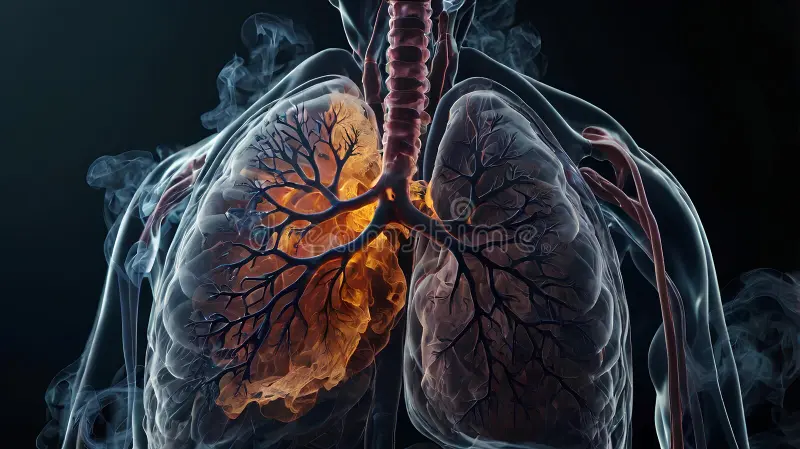Chronic Obstructive Pulmonary Disease (COPD)
Overview of COPD: COPD is a collective term for lung diseases that includes chronic bronchitis, emphysema, and chronic obstructive airways disease. The condition results in breathing difficulties and generally becomes noticeable after the age of 35, with most diagnoses occurring in people over 50.
When to Seek Medical Advice: You should contact your GP if:
- You experience increased breathlessness, especially with movement or exercise.
- You have a persistent cough with mucus (phlegm).
- You often get chest infections, particularly in winter.
- You experience wheezing.
- You smoke or used to smoke and have a persistent cough, especially in the morning.
- You have a flare-up with symptoms worse than usual.
Chest pain and coughing up blood are not common symptoms of COPD and should be further investigated.
Diagnosing COPD: COPD diagnosis is made through:
- Symptom evaluation and smoking history.
- Physical examination, including listening to your chest.
- Lung function tests (spirometry) to measure airflow.
- Chest X-rays, blood tests, and other tests to confirm severity and rule out other conditions.
Additional tests may include ECG, echocardiogram, peak flow tests, oxygen level tests, genetic testing (for alpha-1-antitrypsin deficiency), CT scans, and sputum analysis.
Treating COPD: While there is no cure for COPD, treatments aim to slow its progression and relieve symptoms, such as:
- Stopping Smoking: The most effective way to manage COPD.
- Inhalers: Short-acting bronchodilator inhalers (e.g., salbutamol) for quick relief and long-acting bronchodilator inhalers (e.g., salmeterol) for sustained control. Steroid inhalers may reduce flare-ups.
- Medicines: Mucolytics, antibiotics for infections, and steroid tablets during severe flare-ups.
- Other Treatments: Oxygen therapy, non-invasive ventilation (NIV), and pulmonary rehabilitation programs.
- Surgery and Transplants: Rare options for severe cases.
Causes of COPD: The primary cause is smoking, which irritates and inflames the lungs. Other contributing factors include genetics, pollution, early-life lung development issues, infections, and passive smoke exposure.
Symptoms of COPD:
- Shortness of breath
- Persistent cough with mucus
- Frequent chest infections
- Wheezing
COPD-related lung changes, such as airway thickening, scarring, and loss of lung elasticity, lead to symptoms of breathlessness, coughing, and phlegm production.
COPD management focuses on lifestyle changes, proper medication use, and preventative care to slow disease progression and improve the quality of life.







